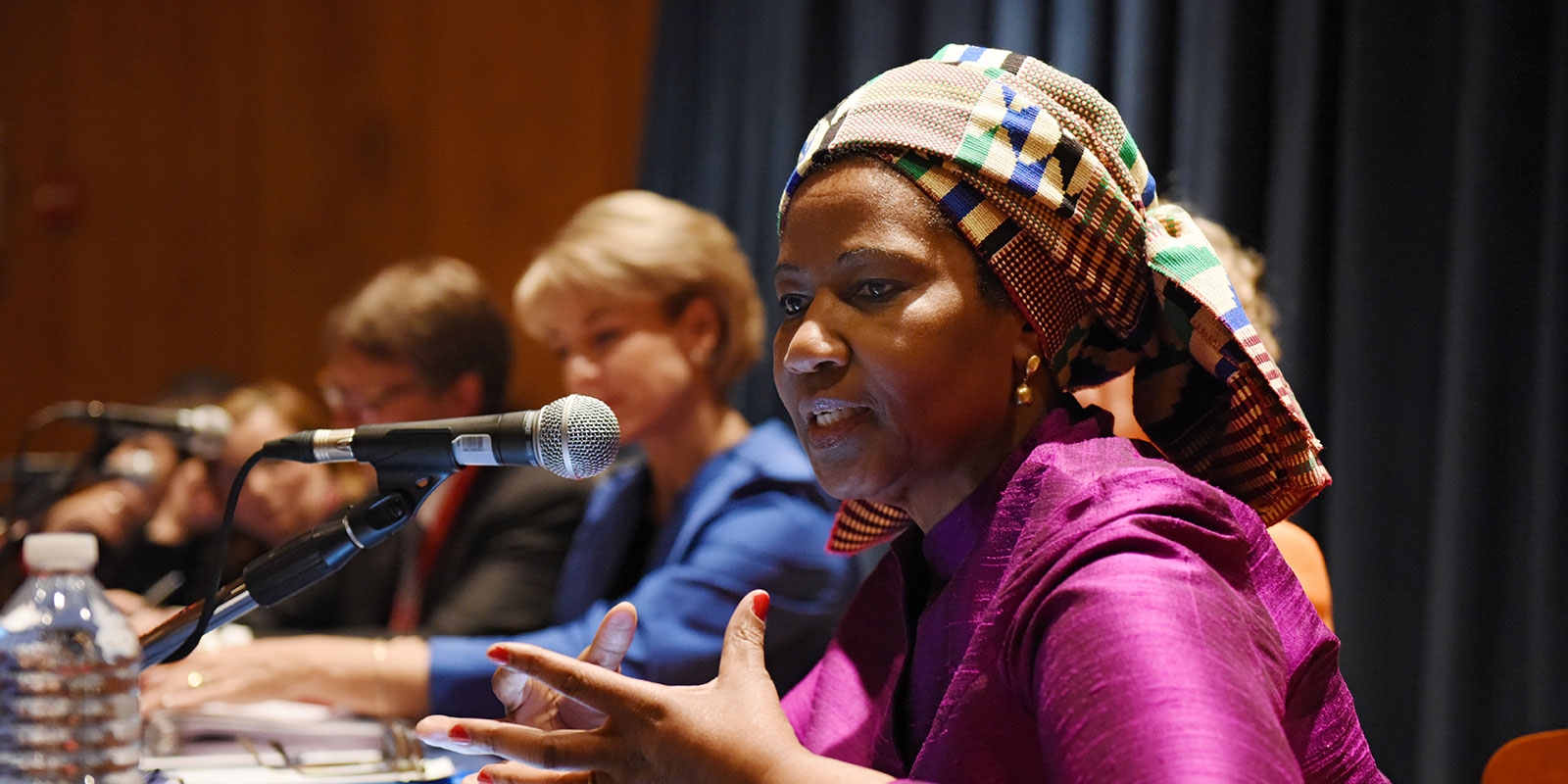Twenty years later, as we commemorate the 20th Anniversary of UNSCR 1325 amidst the COVID-19 pandemic, people across the world are discussing the future of the Women Peace and Security (WPS) agenda. As African women we are envisioning a 1325 version 2.0 that is not only about and for all women in conflict prevention and peacebuilding, but more importantly – with all of us.
African women must envision a UNSC-1325 version 2.0 that is not only about and for all women in conflict prevention and peacebuilding, but more importantly, with all of us @MukondiMpeiwa @FemWiseAfrica
Tweet
For decades, a considerable volume has been written and said about mediation as a viable, positive conflict resolution tool that is applicable to almost any context, regardless of the complexity of the conflict issues, actors or processes. Over time, with the emergence of many multilateral and academic actors on the mediation stage, the discussion and focus seems to have converged on what is commonly referred to as the need to “professionalize” the field. This discourse has also included the professionalization of women mediators, which in some contexts has morphed into a precondition for their participation in peace processes. Conversely, the “lack” of qualified, experienced women is also often presented as yet another justification for their continued marginalization and exclusion, especially in the more formal Track I and Track II processes.
While many scholars, diplomats and practitioners have written on mediation practice, including its professionalization or lack thereof, necessity and relevant approaches, fewer have interrogated the meaning of this “professionalization”, and even fewer have engaged the concept from an African perspective. In discussions around mediation practice, and in many mediation trainings, the phrase “mediation is an art and a science” is commonly used, including by established mediation scholars. While the validity of this statement is on its own debatable, a perhaps more pertinent question to ask revolves around epistemological connotations of such a statement. Which science is mediation, and more importantly, whose science?
To varying degrees, the COVID-19 context has relocated mediation practice in important ways, and reorganized the relevance of various actors. Local mediators and their efforts are now at the forefront and receiving more recognition and support. This makes the discussion of indigenous approaches to conflict resolution a necessary and timely one. Additionally, with 2020 as the commemorative year of the 20th anniversary of UNSC Resolution 1325, and despite the unprecedented challenges posed by COVID-19, the world’s attention has momentarily returned to the WPS agenda. This gives women mediators, including African women, a unique and timely opportunity to instigate and make the case for more inclusive approaches to conceptualizations and practices of mediation. This is necessary as we fight to ensure that professionalization is not synonymous with deligitimization and additional barriers to participation.
It is for this reason that the African Union’s (AU) FemWise-Africa Network (FEMWISE) is using the month of October 2020 to take stock, and leverage our experiences and heritage as African women mediators. As we look ahead to the future of women in mediation , we are placing our focus on women’s roles in indigenous conflict resolution in Africa, and really digging into our members’ perspectives and experiences of these approaches and structures. Through different case studies from the five Africa regions, we explore some of the challenges and opportunities that these processes, structures and mechanisms present for women peacebuilders and mediators, and how they can be harnessed to build more sustainable, inclusive and participatory peace in the future. Through these efforts, our aim is to at minimum instigate some out-of-the-box, innovative thinking and inspire new collaborations and partnerships that will advance the WPS agenda further, faster and more inclusively.
Although we believe and recognize, partly inspired by the COVID-19 experience, that the future WPS agenda must take on a more “whole of society” approach, we also know that this does not absolve us from responsibility for our future as African women peacebuilders and mediators. Collectively, we must take full ownership of the critical aspects of the agenda that only we can deliver for ourselves– and one such area is coordination and unity in purpose and action. A united voice is unarguably stronger and louder. In order to make the required gains, we need to strengthen our togetherness and become more deliberate and intentional about breaking down the barriers that divide us. This includes focusing more attention on our intergenerational engagements and exchanges so that African women, both young and old, can take up their place in the WPS space and become “unignorable”, together.
‘Mukondeleli Mpeiwa, Senior Policy Officer in the African Union (AU) Mediation Support Unit (MSU) and Coordinator: Panel of the Wise and FemWise – Africa Secretariat

